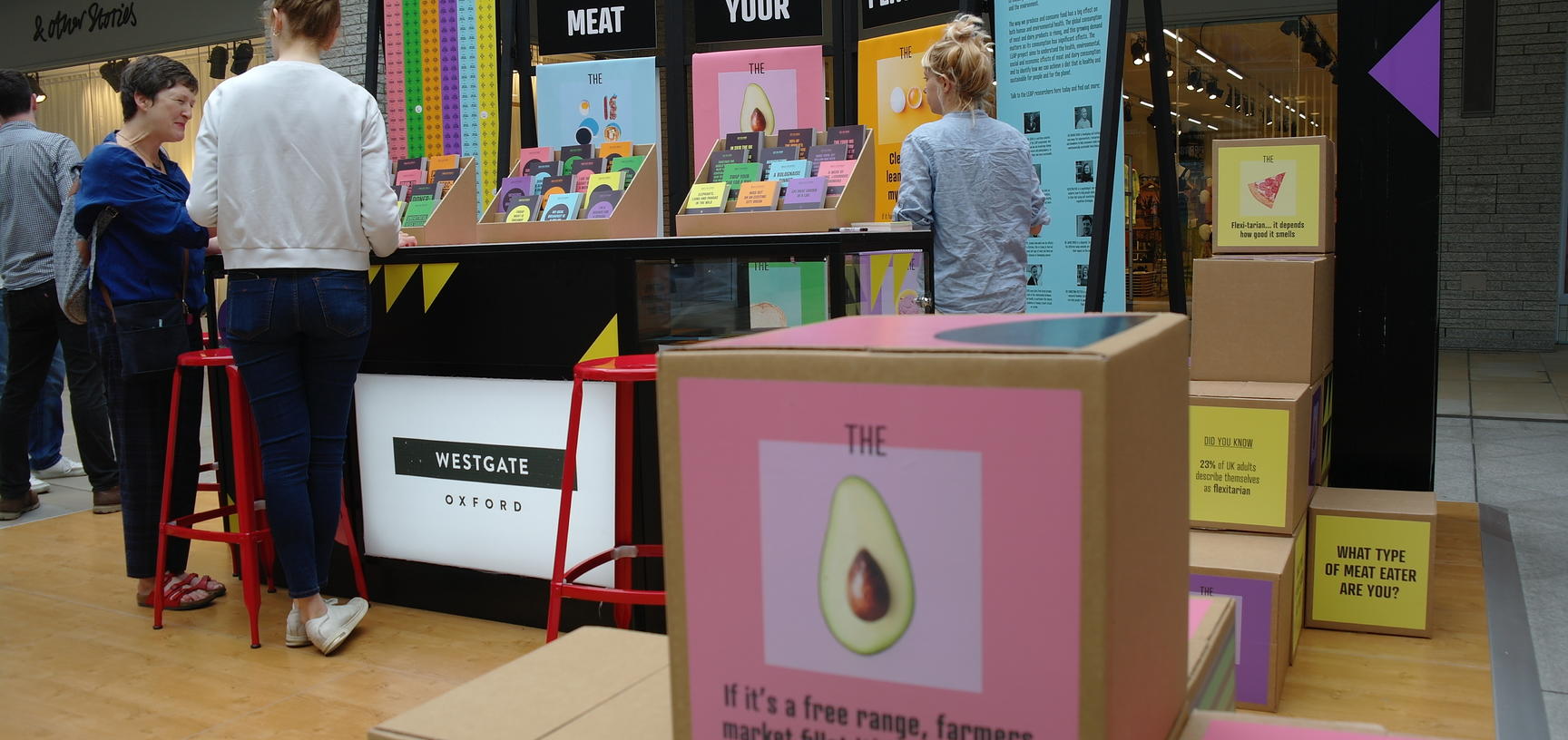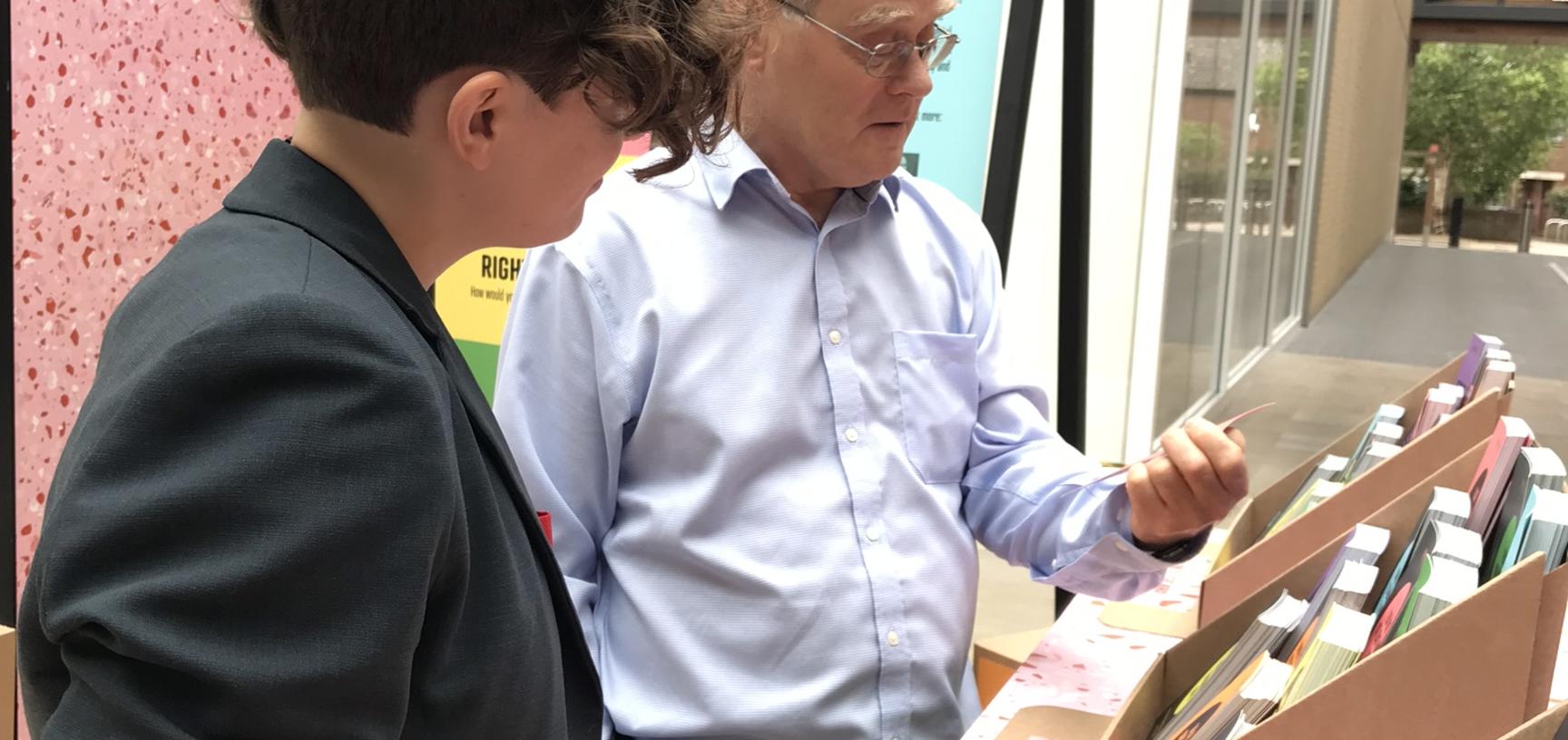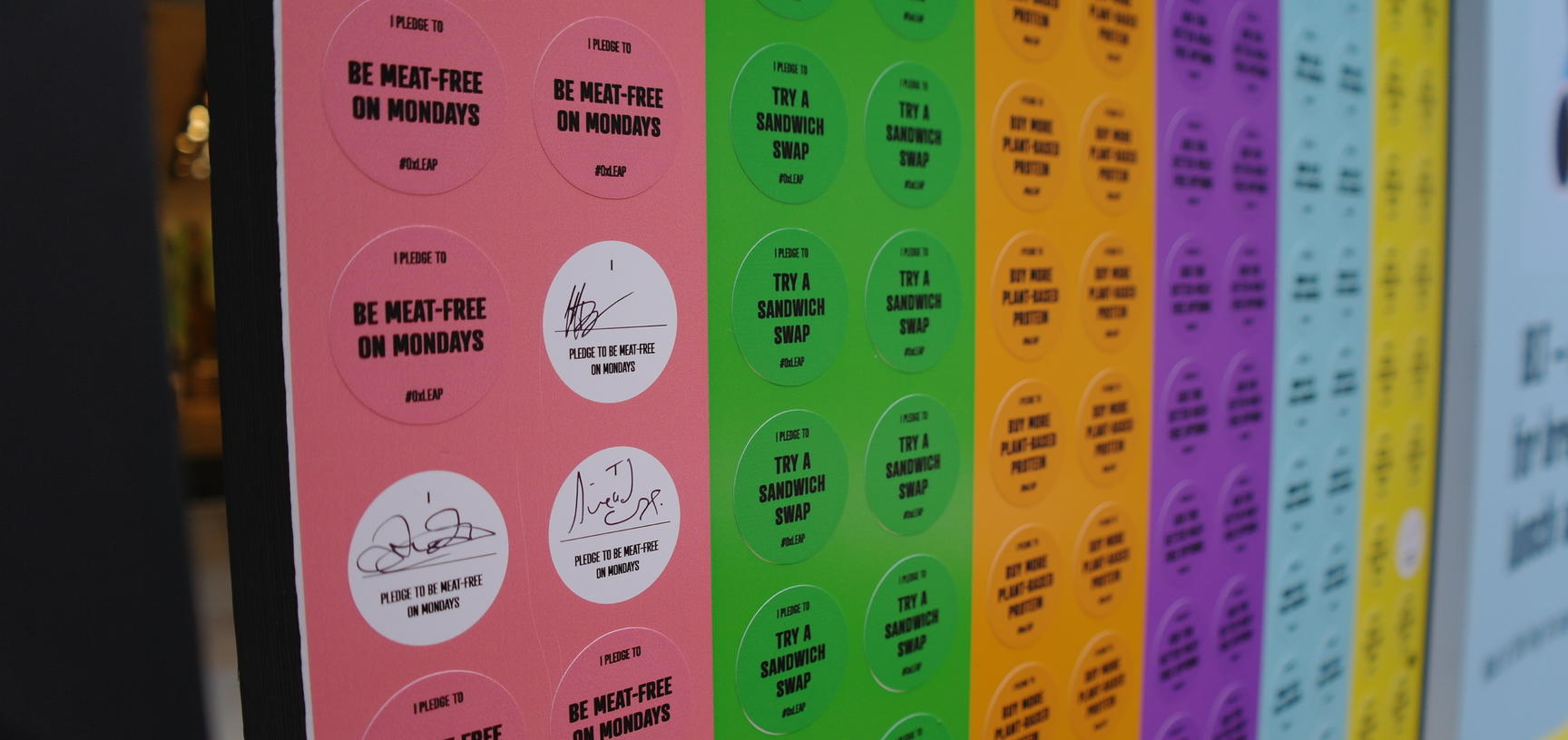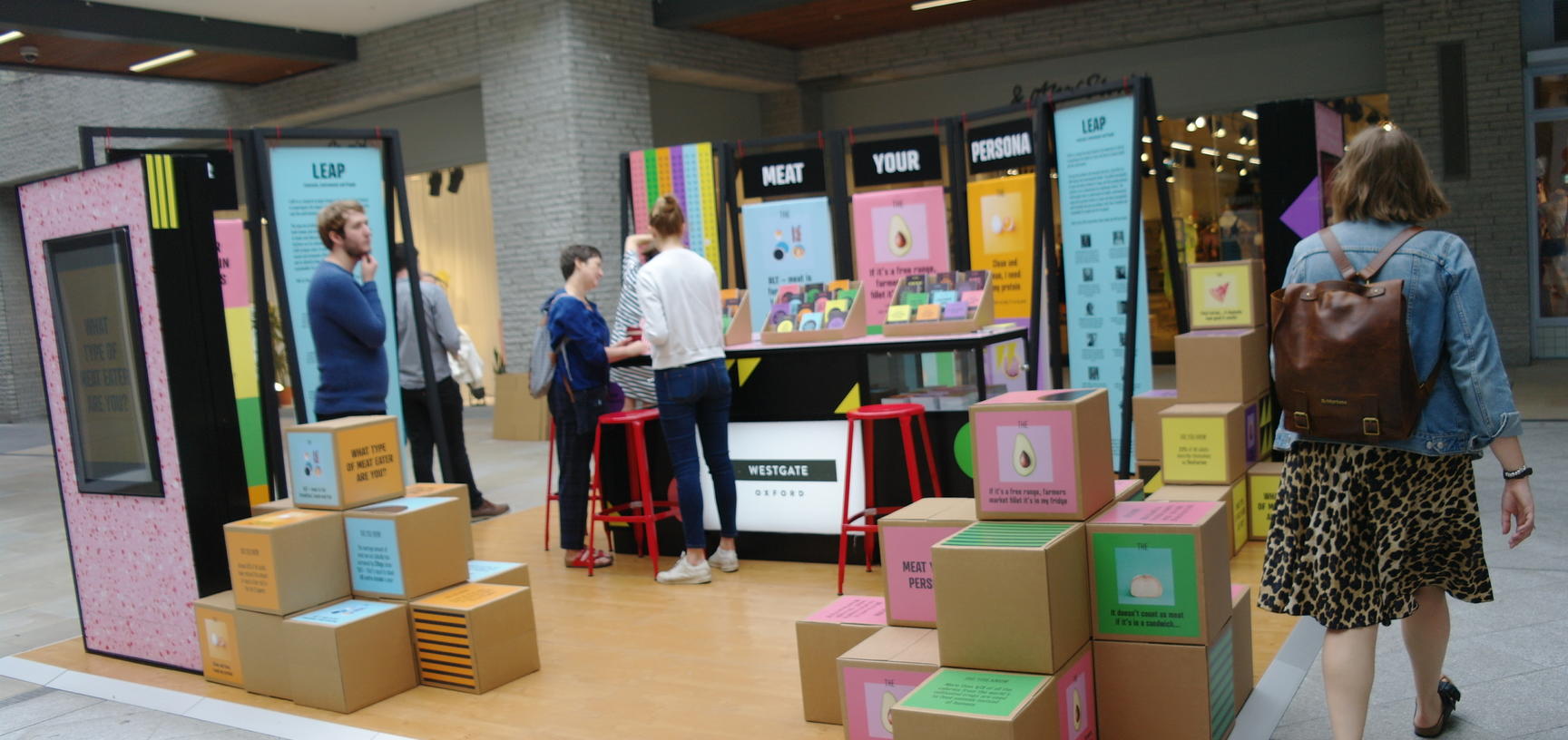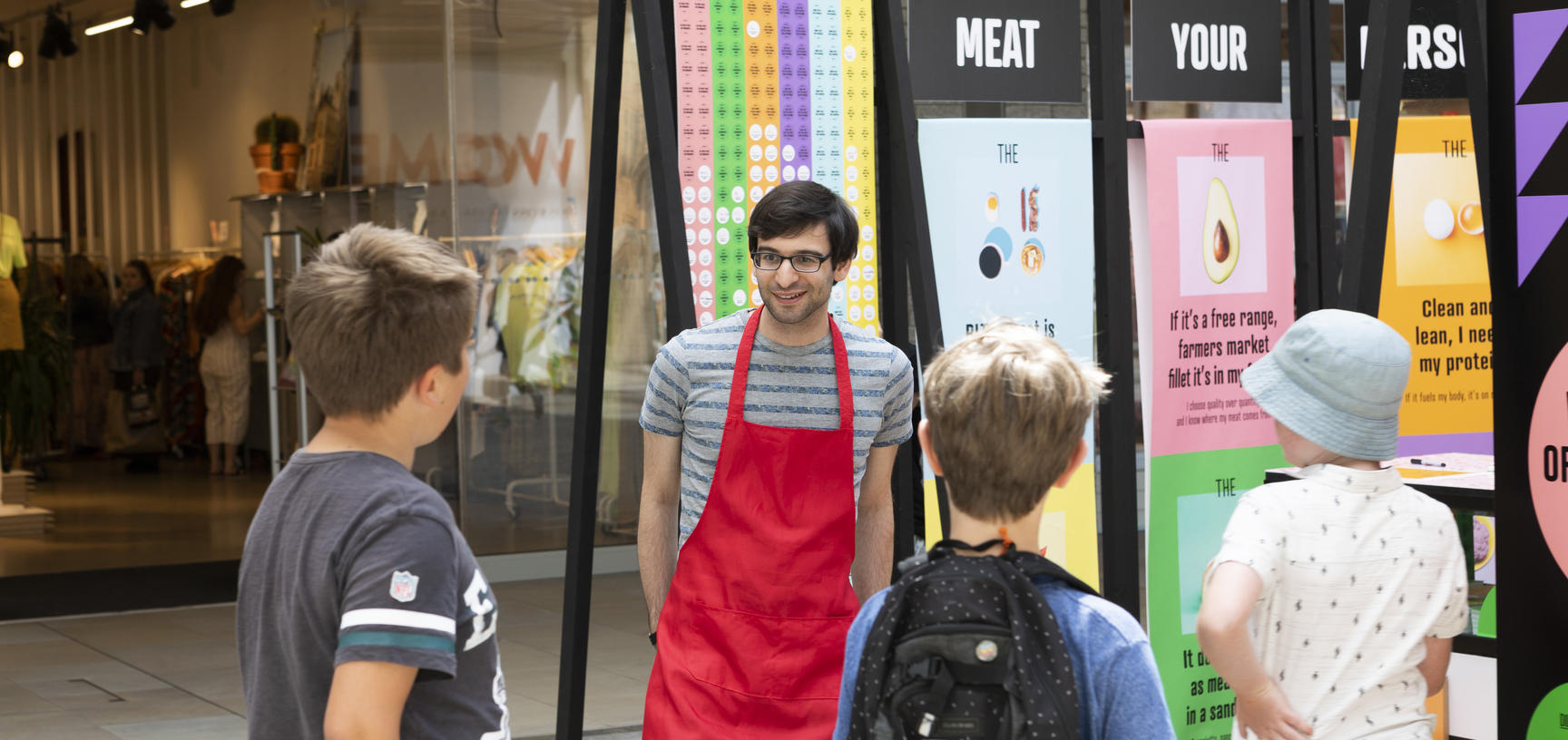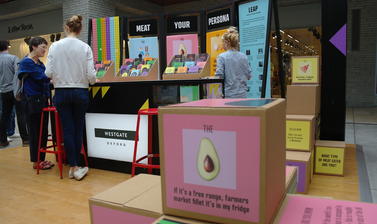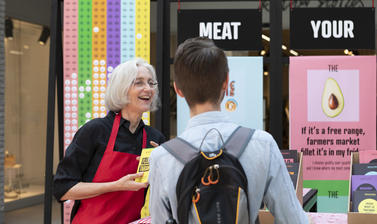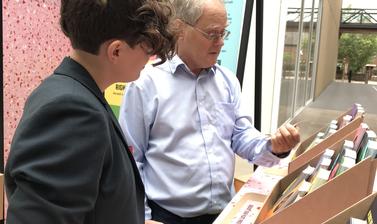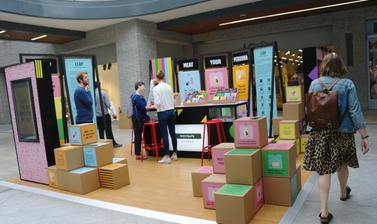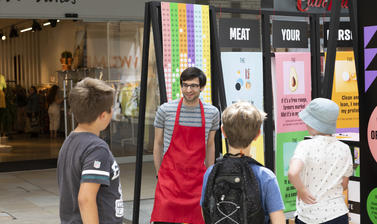Meating your persona at Westgate shopping centre, Oxford
When Land Securities offered us kiosk space in Oxford’s Westgate Shopping Centre we jumped at the chance to talk to people in this novel environment. We knew visitors would expect Cath Kidston and John Lewis but we wanted to find ways to interest shoppers in the health and environmental impact of eating meat and we wanted to learn from the public in turn about their meat consumption.
We knew from research commissioned by the Eating Better Foundation in 2017 that 72% of the UK’s population either doesn’t agree that eating meat has a significant impact on the environment so we were also keen to help start this national conversation and raise people’s awareness about the impact of our food choices. Our stand at the Cheltenham Science Festival on 9th June 2019 had clued us in to what a tricky area this can be to discuss as people worry they will be judged.
We enlisted the help of consultancy, Liminal Space, to help us develop activities and make sure we were as engaging and eye-catching as possible in a busy retail environment. Working with our researchers, they designed a three-step process which would allow us to talk in detail to visitors about their meat-eating.
The first step asked people to think about the language they used around their meat-eating. Some of these were intended to be fun provocations (Alfesco-tarian – ‘Once it’s closing time I’ll eat anything’) but they also spanned a range from Meat-atarian for the hard-core meat-eater to Vegan. We wanted to make sure we were equipped to talk to everyone. Each of these cards had a fact on the back which explained an area of LEAP’s research. So you could turn over Protein-Obsessed and learn that ‘On average men in the UK eat 50% more protein than they need each day. The LEAP team are analysing the relationship between the amount of meat we eat and the risk of developing heart disease and cancer’. The second stage was to choose cards which fitted with your eating habits. These ranged from ‘Sunday is always a roast’ to ‘I eat out at least once a week’. This then gave you further information about social norms and how these habits might impact health or the environment. The third stage asked people to pick out of two options – ‘Would you rather a week of long, luxurious showers or a Sunday steak?’ This allowed people to contextualise the relative impact of their diet in relate-able terms.
With a handful of cards, people were then directed to match the colours on those they’d taken to one of the six meat personas displayed on the board behind where our researchers were standing. This would allow you to identify yourself as, for example, the BLT (‘meat is for breakfast, lunch and tea’) or the Flexitarian (Most of the time I try not to eat meat but if it’s cooked for me how can I say no?) and this highlighted your priorities, maybe you liked quality over quantity or really valued meat as fuel. There was also an option for people to make a pledge relating to the environmental impact of their meat consumption. This went down well with popular pledge options being opting for meat-free Mondays or buying more plant-based protein.
Our researchers had fascinating conversations with a wide variety of people from local beef farmers to curious teenagers to concerned grandparents. We were also encouraged to think about how barriers to reducing meat eating changed within different cultures with a Vietnamese woman explaining how it was not uncommon to eat insects, while a visitor from Hong Kong told us about the difficulties of trying to reduce meat when her grandparents had cooked her a traditional feast.
We were delighted to get a range of supportive feedback from the public in person and also via our evaluation cards. People commented that they’d learnt about the environmental impact of eating dairy and the relative impact of meat compared to other activities that produce greenhouse gas emissions. People were particularly shocked by the amount of water it takes to produce beef. Many people also told us that they felt inspired to reduce the amount of meat they eat and also to let friends and family know what they’d learnt. Hits on our website peaked at 3,782 that week.
We also had a surprise visit from Instagrammer, Grace Beverley, who storified our information cards and said that the researchers at the kiosk ‘were lovely and very willing to discuss all sides’. We couldn’t ask for nicer feedback.
Thank you, Liminal Space for your amazing support and design and thank you, Land Securities for giving us the space, and most of all, thank you, people of Oxford for being so willing to talk to us and share your insights around your meat-eating.
https://www.youtube.com/embed/QbHb4ap39nw


